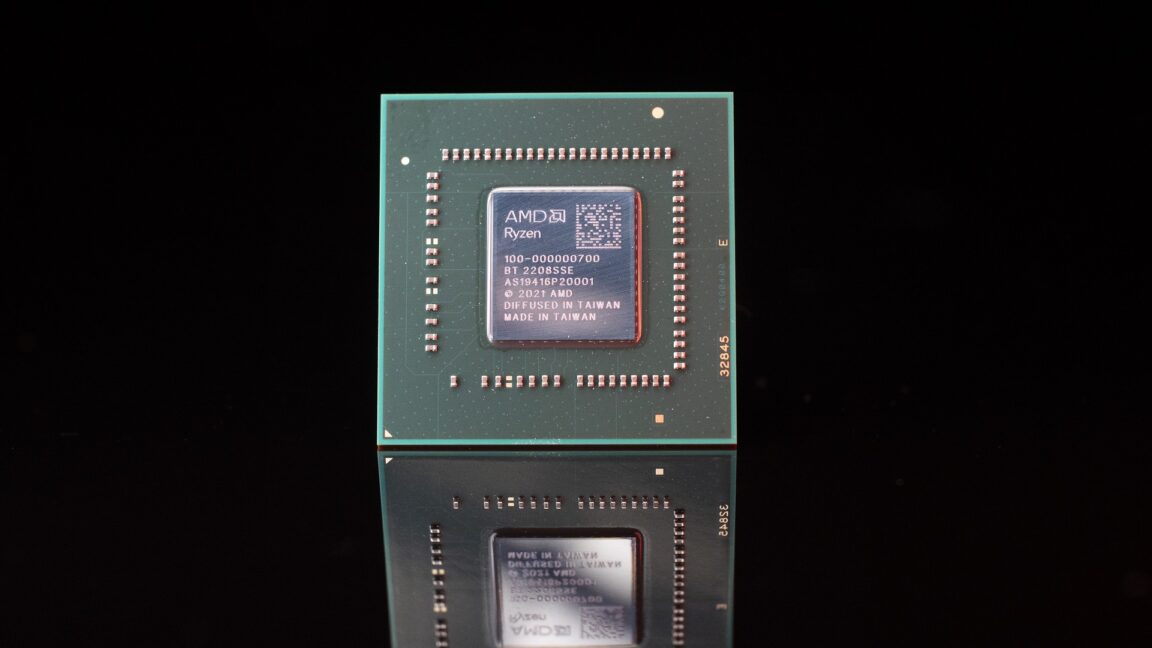
Credit: AMD
As newer, more efficient silicon manufacturing processes have gotten more expensive and difficult to develop, chipmakers like Intel and AMD have repeatedly rebranded some of their older processors with new model numbers. This has allowed both companies to release “new” products that aren’t actually new at all, muddying the waters for people trying to buy lower-end and midrange laptops.
As spotted by Tom’s Hardware, AMD has quietly rebranded a swath of its Ryzen laptop chips with new model numbers without changing the silicon. The rebranded processors use either Rembrandt-R silicon with Zen 3+ CPU cores and RDNA 2 graphics cores or Mendocino silicon with Zen 2 CPU cores and RDNA 2 graphics cores. Both of these architectures first launched in 2022, but Mendocino’s Zen 2 CPU architecture dates all the way back to 2019. During the company’s model number decoder ring era, these designs had been sold as Ryzen 7035- and Ryzen 7020-series chips, respectively.
This is actually AMD’s second rebranding for the Rembrandt-R silicon, which was launched as the Ryzen 6000 series in 2022. These chips will compete most directly with Intel’s non-Ultra Core 100 series processors, most of which use 2022-vintage Raptor Lake silicon.
That leaves AMD with four distinct branding tiers for laptop processors: the Ryzen AI 300 series, which uses all of the company’s latest silicon and supports Windows 11’s Copilot+ features; the Ryzen 200 series for processors originally launched in mid to late 2023 as Ryzen 7040 and Ryzen 8040; Ryzen 100 for Rembrandt-R chips first launched in 2022; and then a smattering of two-digit Ryzen and Athlon brand names for Mendocino chips.
These chips are still capable of providing a decent Windows (or Linux) experience for budget PC buyers—we were big fans of the Ryzen 6000 in particular back in the fall of 2022. But the practice of giving old chips updated labels continues to feel somewhat disingenuous, and it means that users who do want AMD’s latest CPU and GPU architectures (or neural processing units, for Copilot+ PC features) will continue to pay a premium for them.
If you want to squint hard and see an upside to this for PC buyers, it’s that if you can get a good deal on a refurbished or clearance PC using Ryzen 6000, Ryzen 7035, or Ryzen 7020 chips, you’re still technically getting the latest and greatest processors that AMD is willing to sell you. The issue, as always, is that stacking more brand names on top of old processors makes it that much more difficult to make an informed buying decision.

-
 C114 Communication Network
C114 Communication Network -
 Communication Home
Communication Home


